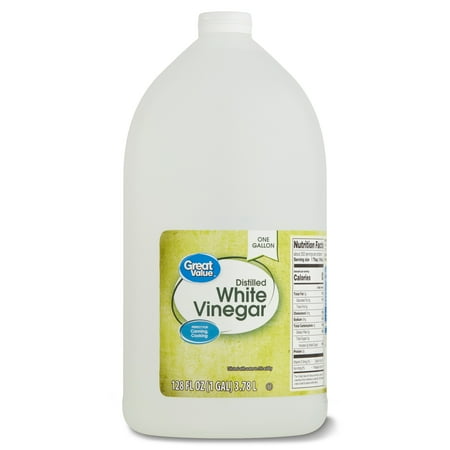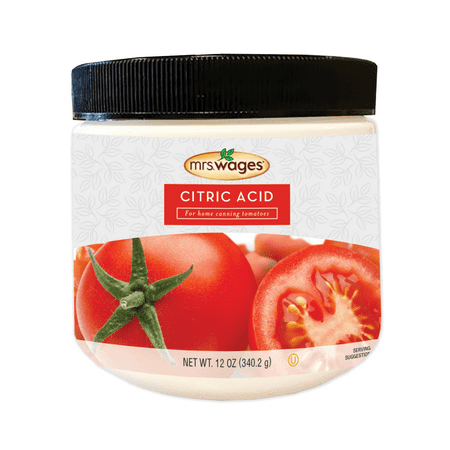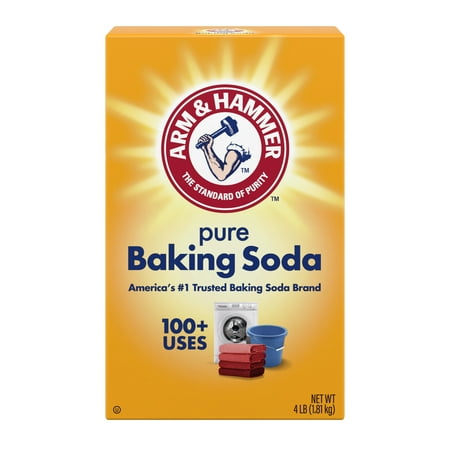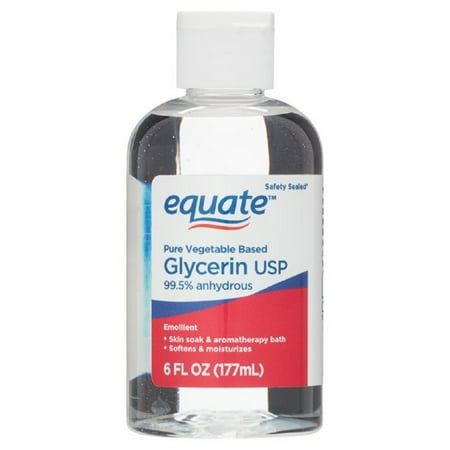How to remove cloudiness from drinking glasses – and 4 surprising household items cleaning pros use for extra sparkle
Our expert-approved 4-step process to sparkling glassware

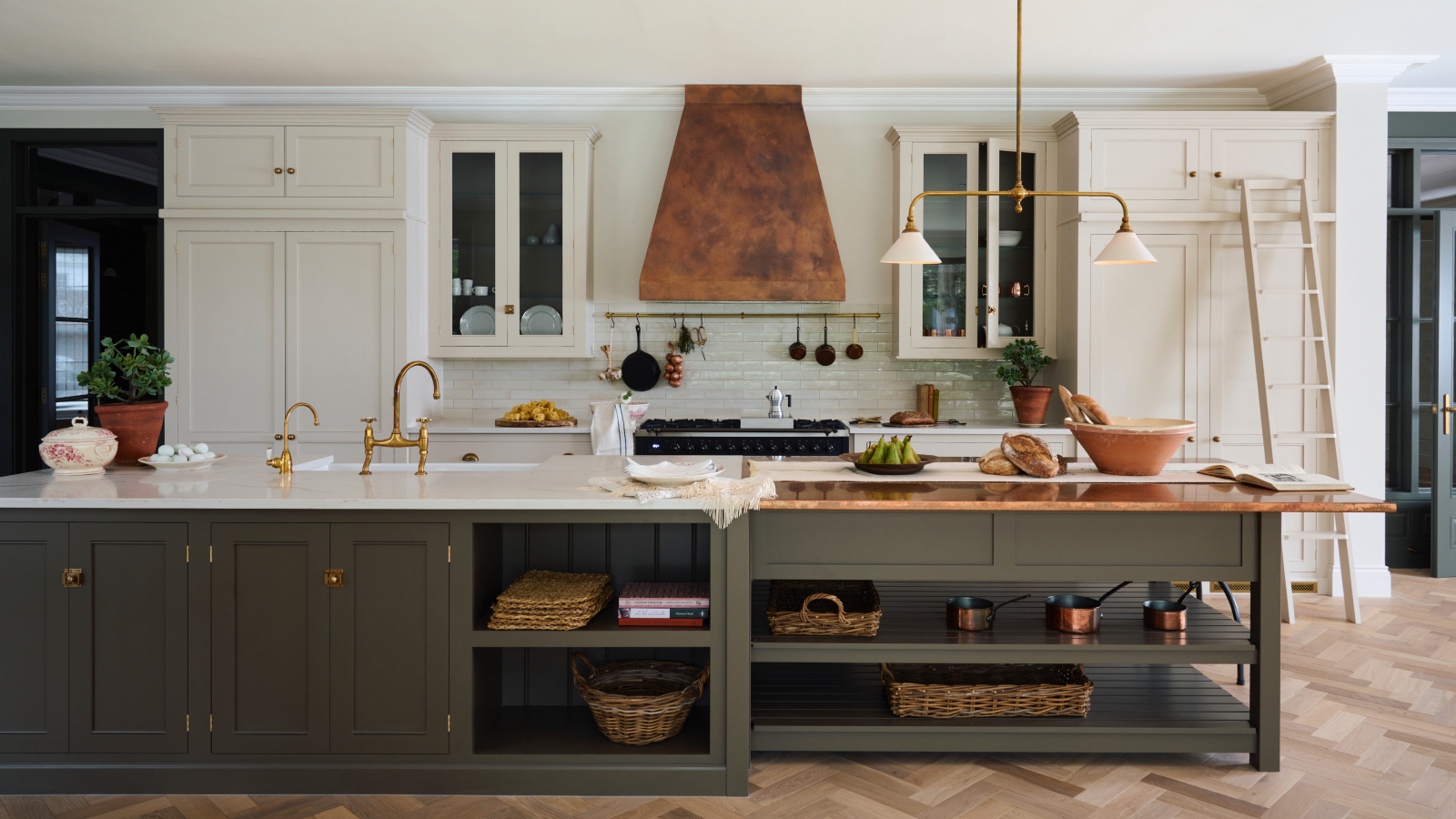
Design expertise in your inbox – from inspiring decorating ideas and beautiful celebrity homes to practical gardening advice and shopping round-ups.
You are now subscribed
Your newsletter sign-up was successful
Want to add more newsletters?

Twice a week
Homes&Gardens
The ultimate interior design resource from the world's leading experts - discover inspiring decorating ideas, color scheming know-how, garden inspiration and shopping expertise.

Once a week
In The Loop from Next In Design
Members of the Next in Design Circle will receive In the Loop, our weekly email filled with trade news, names to know and spotlight moments. Together we’re building a brighter design future.

Twice a week
Cucina
Whether you’re passionate about hosting exquisite dinners, experimenting with culinary trends, or perfecting your kitchen's design with timeless elegance and innovative functionality, this newsletter is here to inspire
It is certainty irritating when you wash glasses by hand or unload them from a dishwasher only to find them still looking cloudy and in need of another wash.
It's a common and inevitable problem, and often the result of hard water and surface corrosion, particularly in glasses you have had for a while use regularly. Luckily, there are ways to remove the cloudiness, and prevent it from returning, with our cleaning pros loving using household items such as citric acid and even denture cleaning tablets for extra sparkle.
Our pros' cleaning tips on making glassware sparkle and keeping it that way, will banish cloudiness from your glasses for good in just four steps.
Step 1: Handwash thoroughly in warm soapy water
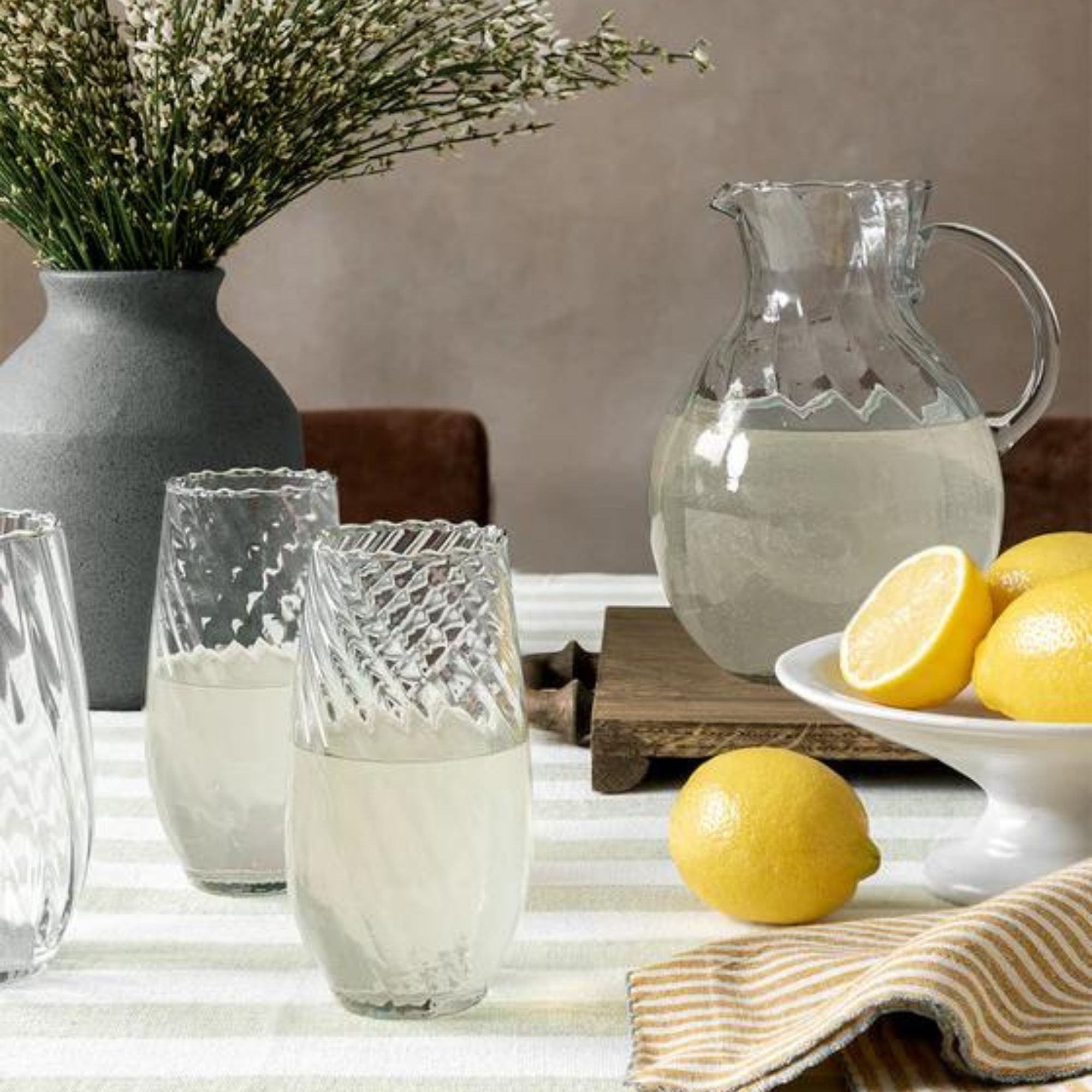
Gorgeous glassware from McGee & Co
If you are wondering why glasses go cloudy in the dishwasher, you might be tempted to give them a whirl in your dishwasher next, but hand washing will bring the best results, our experts say.
'If you're planning on hosting some parties soon, then you probably want your drinking glasses to be shiny and clear, right? Well, washing them by hand is actually the way to go,' says Jade Piper, operations manager for BetterCleans. 'Unless, of course, the glasses are specifically labeled as dishwasher-safe. Hand washing helps prevent etching or cloudiness on the glass, which is definitely not what you want. To make cleaning your glasses easier and time-saving, separate them by type first, like wine glasses, tumblers, and delicate glasses. Then, you can wash them in batches for a really thorough clean.
'When you're actually washing the glasses, hold onto the sturdier parts, like the base or stem. Wash each glass inside first, and then the outside. This way, you won't accidentally transfer dirt back into the glass.'
Piper suggests using a cleaning brush such as this Flute and Stemware Wine Glass Cleaning Brush available at Amazon, to easily clean crystal glasses without scratching. 'Pay extra attention to areas like the rims and bases, where buildup can happen,' she adds. 'If the soapy water starts to get cloudy or too dirty, go ahead and refresh it. That way you'll avoid any smudges or streaks on your glasses.'
Design expertise in your inbox – from inspiring decorating ideas and beautiful celebrity homes to practical gardening advice and shopping round-ups.
Piper also recommends the MQFORU Glass Rinser for Kitchen Sink available at Amazon if you regularly host and have a lot of glasses to wash. 'It’s a good addition if you have lots of cups to rinse, but for me, I still prefer manually rinsing them under warm water,' she says. 'Glassware is not cheap, and I don’t want to risk breaking the rims because of the pressure!'
You can also stop glassware from scratching further by storing them correctly with drawer and shelf liners, or by displaying them in a rack, such as the Danyia Solid Wood Wall Mounted Wine Glass Rack in Natural available at Wayfair.
Step 2: Use a natural, DIY cleaner
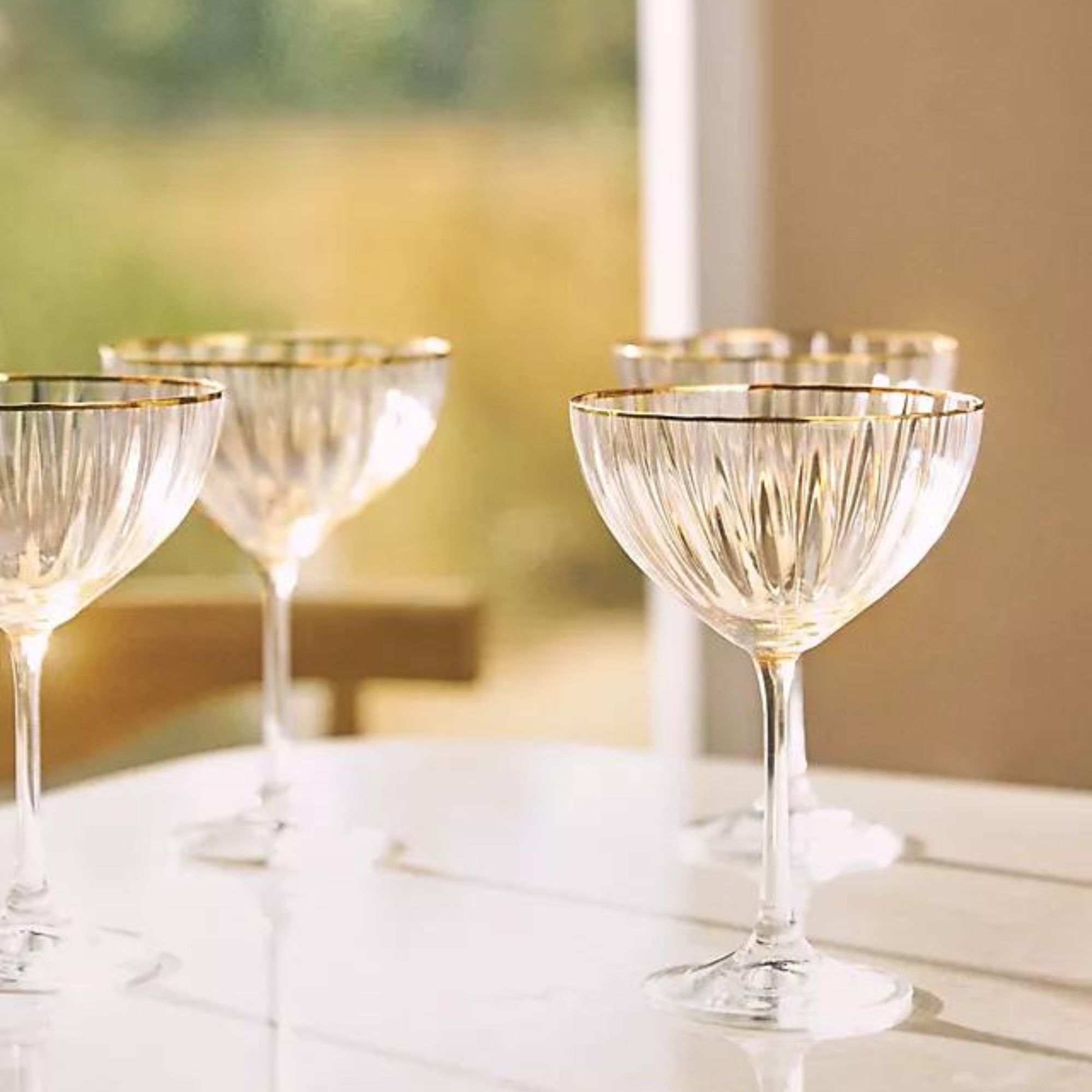
Beautiful glassware from Anthropologie
If hand washing isn't enough, there are a number of natural cleaning solutions you can try to make your glasses shine.
'Believe it or not, the best way to clean glasses that are cloudy is to use safe, non-toxic homemade glass cleaners,' says Ken Doty, COO and cleaning expert at The Maids. 'Eco-friendly alternatives that don't contain dyes, fragrances and other abrasive chemicals are the key to eliminating cloudiness. There are several techniques to keep in mind that will help with cloudiness prevention.'
Clean with vinegar
There are many things around your home you can clean with vinegar, and it's effective on glassware, too. 'When it comes to cleaning glasses that are already cloudy, you'll need vinegar, your trusty microfiber cloth (such as the bestselling HOMEXCEL Microfiber Cleaning Cloth available at Amazon), dishwashing liquid and distilled/white cleaning vinegar,' says Doty.
'Soak the glasses within the vinegar (make sure there is enough to completely envelop the glasses) and rotate them slowly. After 15-20 min, wipe away the vinegar solution. Proceed to wash the glasses as normal and dry with the microfiber cloth. You can also create a spraying solution if you'd like (and we recommend using the Great Value All Purpose Plastic Spray Bottle available at Walmart).
'Mix two cups of distilled water with a half cup of white vinegar in a new spray bottle and label it. Shake the ingredients and spray the glass cleaner onto the glass, before wiping thoroughly with a soft cloth, buffing the glass to a sparkling shine.'
Clean with citric acid
Glassware is one of the things you can clean with citric acid around the house. 'Citric acid is my go-to for cloudy glassware,' says Carolina Kazimierski, co-owner and president of Sophia's Cleaning Service. 'I'll either dissolve some crystals in water and soak the glass in it before scrubbing, or put the glasses in the dishwasher and add the crystals directly to the detergent spot and run a cycle. Lots of glass cleaners are essentially just citric acid, or feature it as a primary ingredient, so going straight to the source is often more effective along with being cheaper.'
Brian Davis, cleaning expert and CEO at Handy Rubbish, also recommends a lemon and salt scrub, to harness the natural citric acid found in the fruits. 'Take half of a lemon and dip the cut side into some coarse salt,' he says. 'Apply the lemon right onto the cloudy spots of your glasses. Citric acid naturally found in lemons pairs well with salt, a scrub that removes cloudy films to return sparkle.' Coarse salt is available on Amazon, or in most stores.
Clean with baking soda and hydrogen peroxide
You can also shine glassware and remove cloudiness by cleaning with baking soda. 'As the CEO of Millennium Facility Services, I have plenty of experience removing mineral buildup and cloudiness from glassware,' says Austin Jones. 'We regularly provide deep cleaning services for restaurants across Georgia, and glass polishing is part of restoring each location's sparkle.
'For a speedy solution, a paste of baking soda and hydrogen peroxide (available at Walmart) applied with an abrasive sponge or scrubber can lift away most cloudiness and spots within 5-10 minutes. Be very thorough when rinsing to remove all traces of the paste.'
Clean with denture tablets
Did you know that glassware is one of the surprising things you can clean with denture tablets? They work to remove cloudiness from your drinking glasses as the bleaching agents in the tablets help to lift stains.
'To remove those stubborn cloudy appearances on your favorite glassware that seem impossible or difficult to get rid of by other means; try using denture cleaning tablets,' says Daniel Brown, professional cleaning expert and CEO of Handy Cleaners. 'Put one or two into warm water, then soak the affected glasses in it for about half an hour. The effervescent action of these tablets helps break down and remove mineral deposits leaving them clean and sparkling again! Rinse well with a warm running tap afterward.'
This method works particularly well on those glasses that are intricately designed, where other techniques might not reach easily. Their formulation allows them to work effectively against tough stains yet gentle enough surface materials found in glassware.
Daniel adds, 'We recommend the bestselling Polident Overnight Whitening Denture Cleanser Tablets available at Walmart for this.'
Step 3: Rinse thoroughly
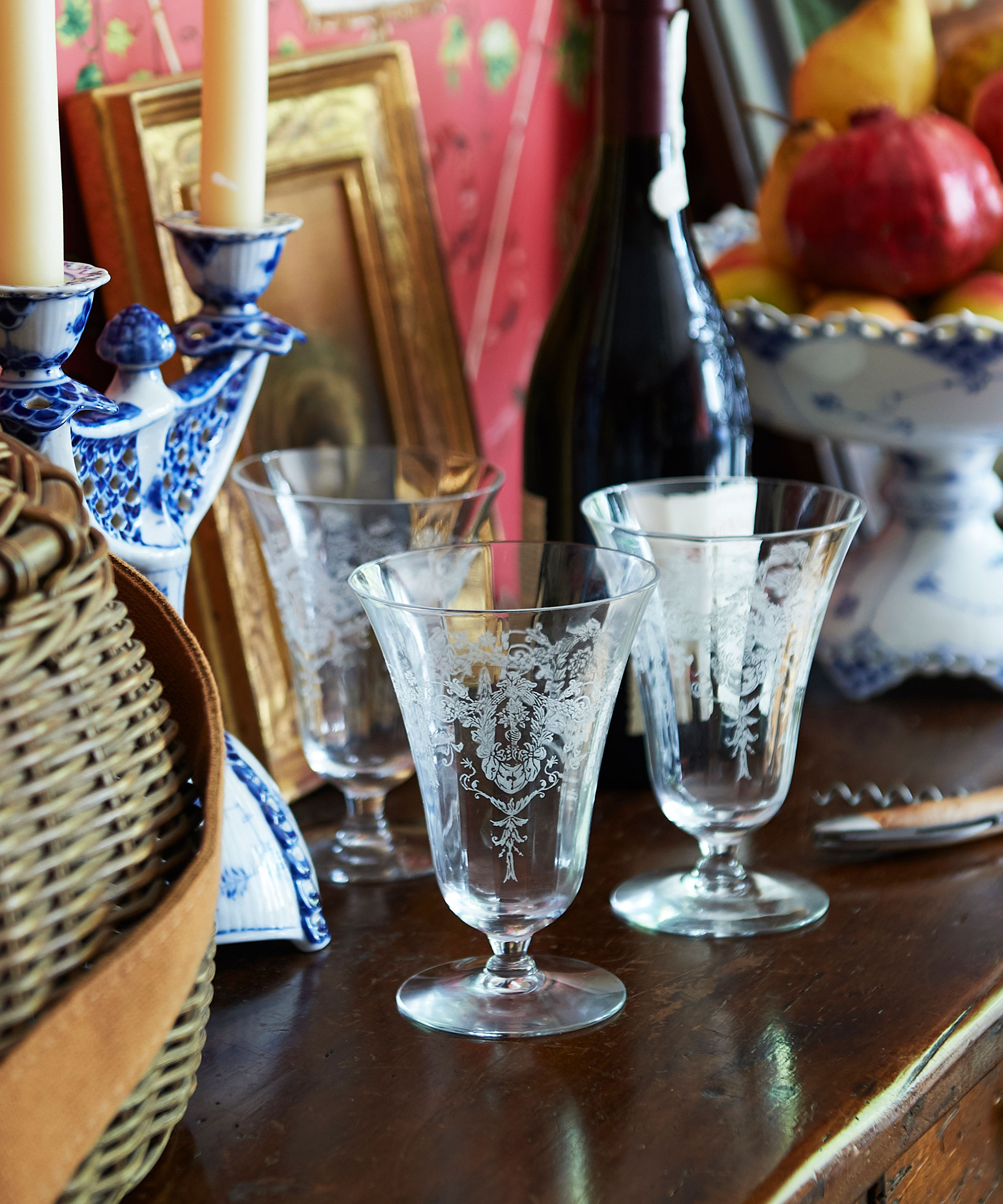
The next step to sparkling glasses is to rinse them thoroughly, whichever eco-friendly cleaning products you choose.
'Rinse thoroughly under running water til there’s no residue of soap left behind so it will not affect the taste of your drink,' says Piper. 'This is an extra step, but if you want to ensure there’s no residue, hold your glasses up to light.'
Step 4: Air-dry your glasses
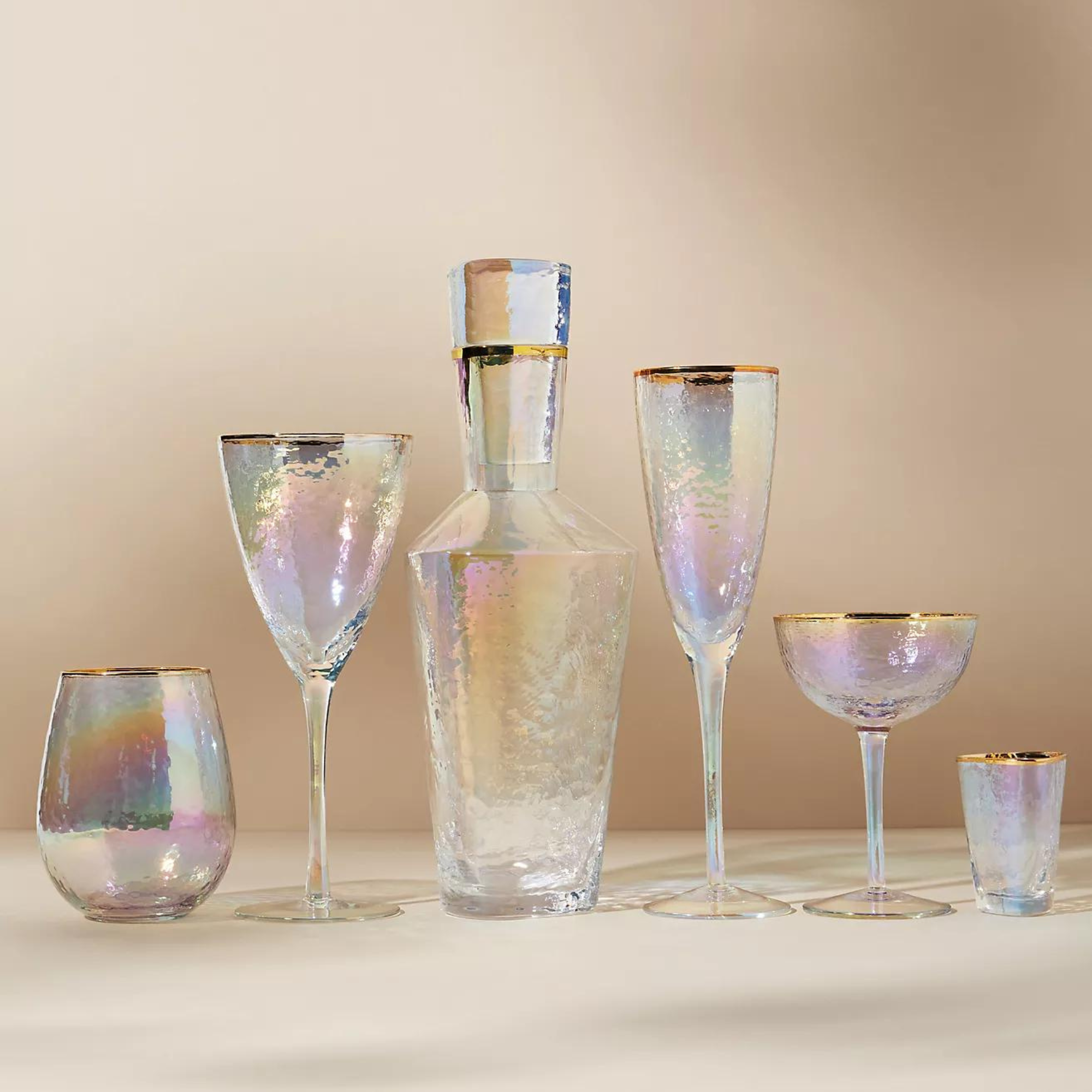
The final step to sparkling glasses is to air dry them thoroughly, before buffing with a soft cloth. Just be sure to follow the kitchen sink organizing rules and avoid leaving glasses to 'dry' for extended periods of time– they need to be put away to prevent dust build-up.
'You can air dry them on a rack which can minimize contact and potential contamination or use a lint-free cloth (such as the VALENGO Lint Free Rags available at Amazon) for a spotless, streak-free finish,' says Piper. 'If you do prefer to airdry, never do it in direct sunlight because UV rays can cause glasses to cloud and discolor over time. For extra sparkle and to remove remaining water spots, use an ultrafine polishing cloth.'
Piper recommends the MR.SIGA Ultra Fine Microfiber Cloths for Glass available at Amazon for this, which are non-abrasive and easy to wash.
How to stop cloudiness from returning
Once your glasses are pristine and polished, the last thing you will want is that cloudy appearance returning. Here's how to stop it coming back for good.
1. Avoid harsh detergents
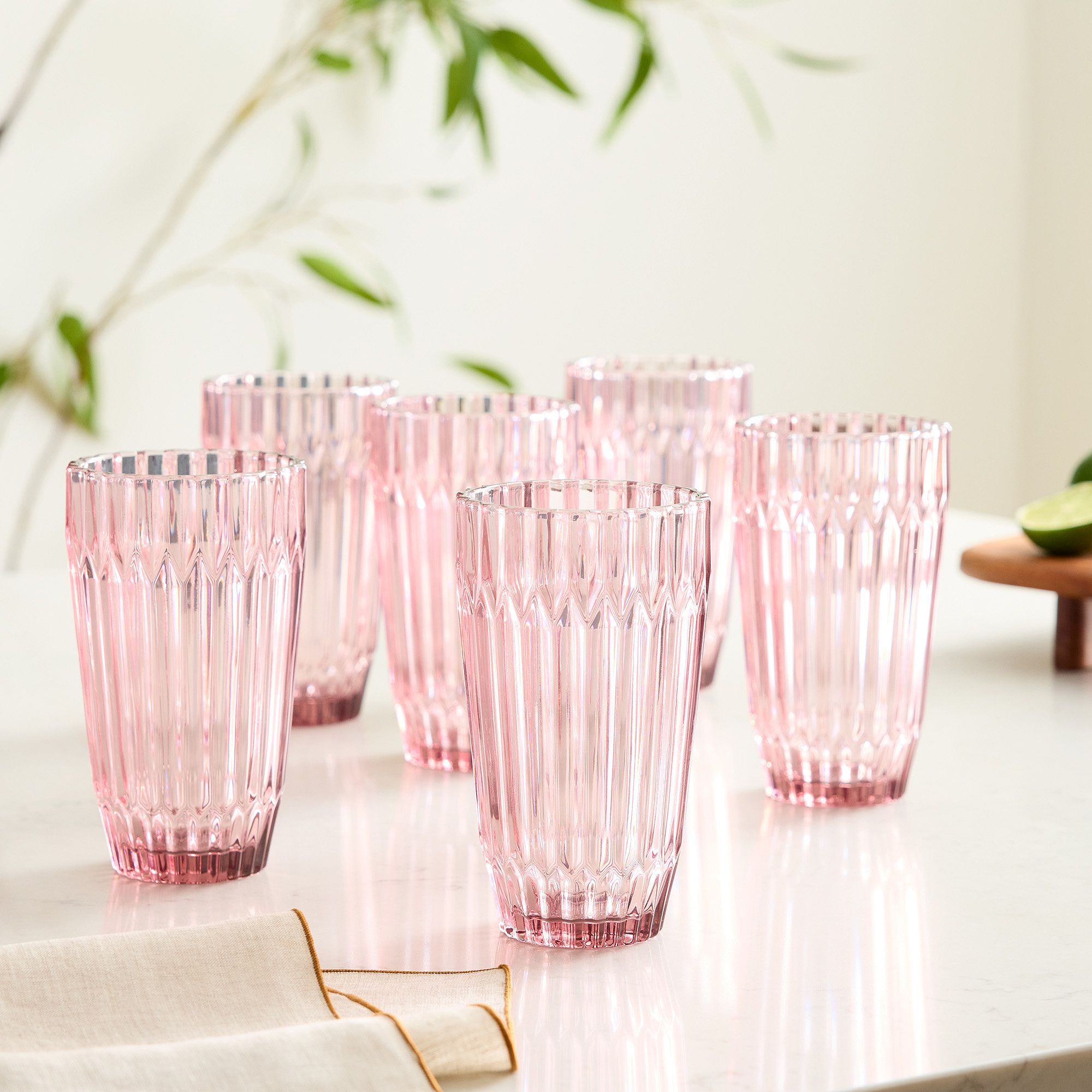
DIY, eco-friendly solutions and handwashing are a better option for cleaning glassware and keeping it sparkling, as even the best dishwasher can turn glasses cloudy with strong detergents.
'In the long run, dishwashing liquids containing strong chemicals like phosphates may etch glass surfaces thereby causing permanent damage through a corrosion process known as glass rot,' says Brown. To prevent this, Brown recommends the Seventh Generation Free & Clear Dishwasher Detergent available at Amazon, 'since it does not contain these harmful substances but is still effective against stubborn stains, especially when used alongside a DIY, eco-friendly method.'
Brown's pro tip is to lower your dishwasher temperature, if you are unable, or don't want to, hand wash your glassware. 'If after following these steps there are still some stubborn marks left behind, chances are that your glass has been etched permanently, thus making prevention paramount going forward. Reduce the amount of detergent used and lower your dishwasher temperature settings.'
2. Install a water softener
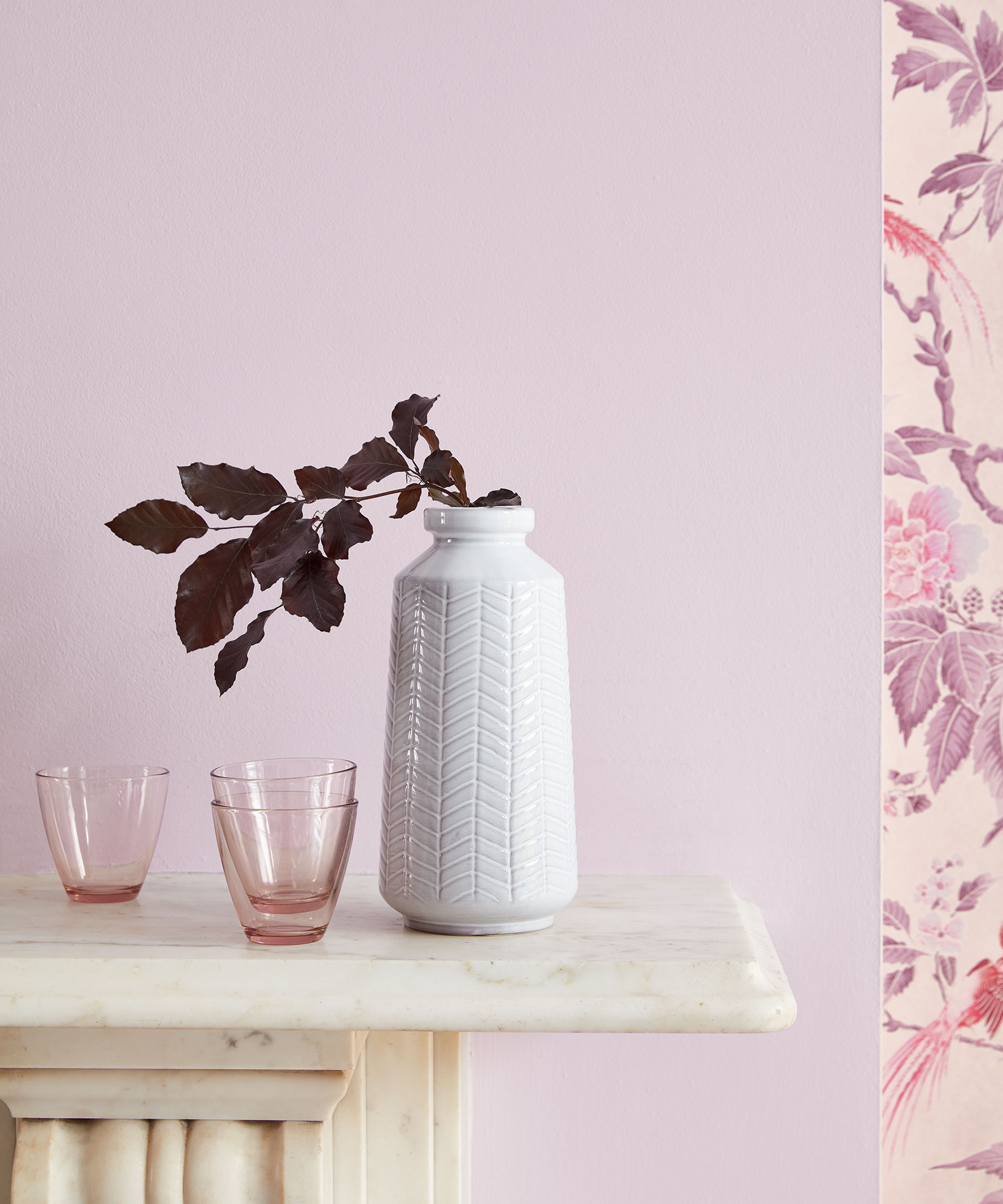
'The most effective approach is preventing buildup in the first place,' says Jones. 'For homeowners and businesses with hard water, installing a water softener to remove excess minerals is key,' such as the iSpring ED2000 Whole House Water Descaler available at Walmart is perfect for cleaning wine glasses properly.
3. Use glycerine wipes
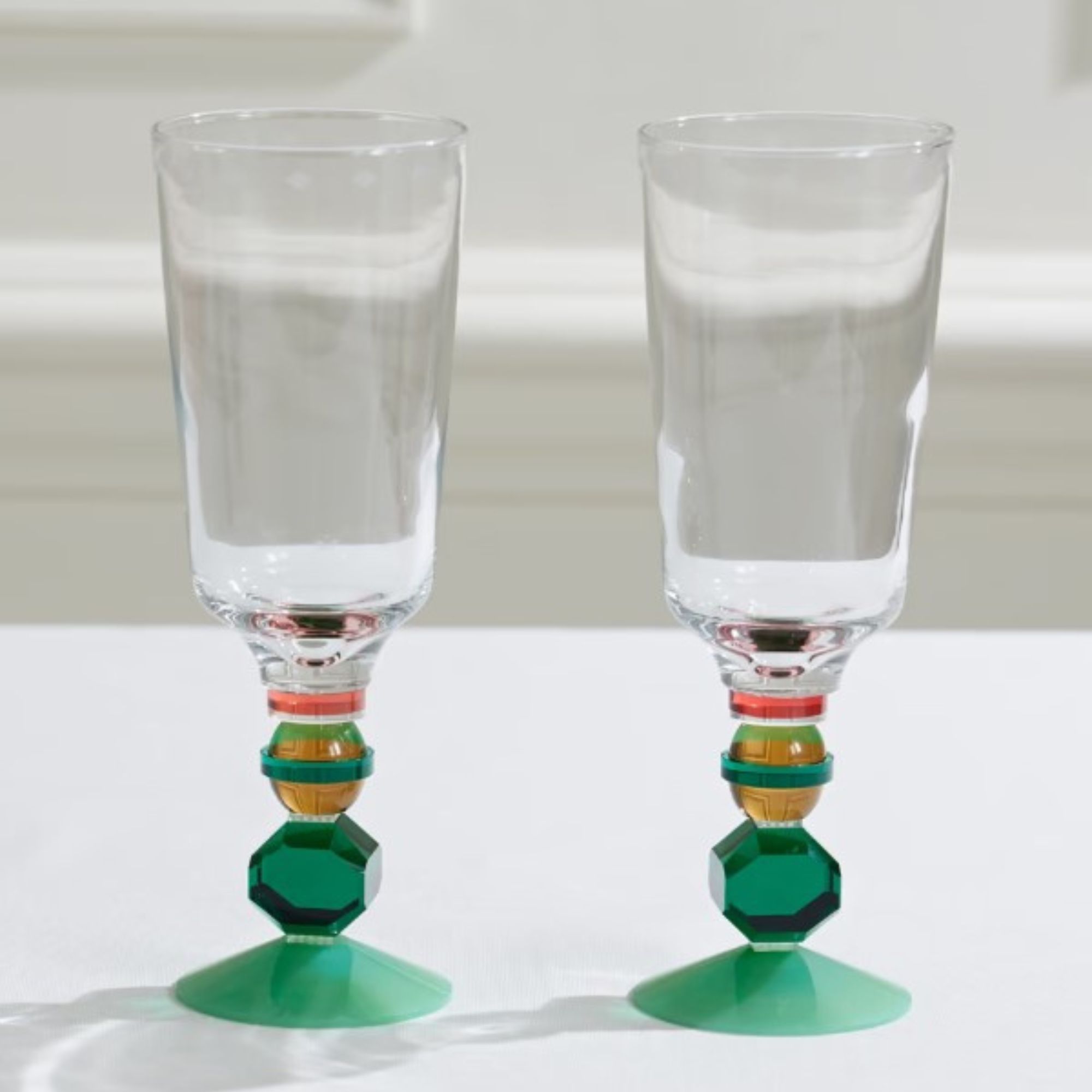
Colorful glassware from Net-a-Porter
After cleaning your glasses, put a tiny amount of glycerin on a soft cloth and buff over them, recommends Davis.
'Glycerin forms a barrier that stops further mineral buildup, thus keeping your glasses clear for a long time,' he says.
FAQs
Can you clean glasses with toothpaste?
Glassware is a surprising thing you can clean with toothpaste, which is a great affordable, household option.
This works as toothpaste is a very mild abrasive, which will help to remove the cloudy film without damaging the glass – and it's even gentle enough to use on crystal. Pair it with a soft toothbrush for a delicate method to clean intricate designs thoroughly.
Once clean and cloud-free, master how to organize your glassware.

Ottilie joined Homes & Gardens in 2024 as the News Writer on Solved, after finishing a Master's in Magazine Journalism at City, University of London. Now, as the Sleep Editor, she spends her days hunting deals and producing content on all things sleep – from mattresses and sheets to protectors and pillows, all of which she tests in her own home. She also has particular expertise in home fragrance, covering everything from candles to reed diffusers.
Previously, she has written for Livingetc and Motorsport Magazine, and also has a Master's degree in English Literature and History of Art from the University of Edinburgh, where she developed a love for inspiring interiors and architecture.
